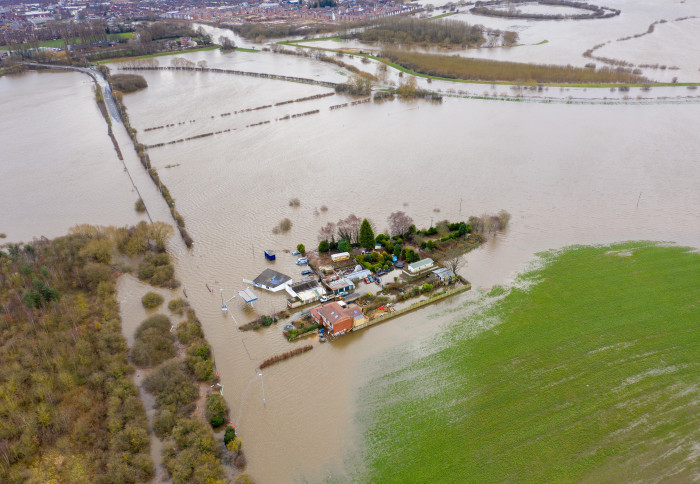Holistic approach needed to tackle the impact of climate change on mental health
by Maxine Myers

Healthcare leaders and policy makers must take a holistic approach to respond to the mental health impacts of climate change, says an Imperial expert.
Dr Emma Lawrance, Mental Health Innovations Fellow at the Institute of Global Health Innovation, says there needs to be more focus on understanding and tackling the links between climate change and worsening mental health.
The 2019 climate conference (COP25) did not include any official events related to mental health and climate change. Whilst COP26 in 2021 chose health as a priority area for science, the corresponding program still did not address mental health with a ‘parity of esteem’ to physical health. This is significant when the mental health impacts of the climate crisis are currently large ‘hidden costs’, which will escalate without action.
Hidden costs
Dr Lawrance was speaking at a joint Imperial College Academic Health Science Centre (AHSC) and Grantham Institute COP26 online seminar which took place earlier this month. She was joined by Dr Benjamin Barratt, Reader in Environmental Exposures & Public Health and Deputy Director of the Environmental Research Group at Imperial, who talked about his work monitoring air quality within communities.

Climate change and mental health
At the seminar Dr Lawrance spoke about a briefing report which she led, ‘The impact of climate change on mental health and emotional wellbeing: current evidence and implications for policy and practice.' This provided substantial evidence that climate change has a detrimental and multi-faceted impact on mental health, with significant costs to individuals, health systems and economies that are currently unaccounted for in policy and practice.
Some of these impacts include:
- Rising temperatures are associated with increased suicides and suicidal thoughts ( around 1 per cent for every 1°C temperature rise in a hotter day relative to a local threshold). Without climate action, it is estimated that by 2050 there will be an estimated 22,000 extra suicides in the USA and Mexico due to higher temperatures
- Across 25 countries negative emotions about climate change are related to insomnia and poorer mental health
- High levels of eco-anxiety- a chronic fear of environmental doom- were found in young people. In a survey of 10,000 young people aged 16-25, 56 per cent thought humanity was doomed and two-thirds said they were sad and scared.
Dr Lawrance said: “Climate change and biodiversity loss are linked to poor mental and physical health. Wildfires, floods and heatwaves have resulted in people losing homes, higher hospital attendance and new cases of mental illness. To turn this around we need to start looking at this issue holistically and stop treating these issues in silos. We need to showcase more the benefits of creating a safe climate on mental health. I would like this see more of this in policy and health planning.”
Dr Lawrance also discussed recommendations from the report across sectors, including for health system leaders and healthcare practitioners. These include training for healthcare workers to identify, manage and speak out about the impact of climate change on mental health; the inclusion of people vulnerable to and with lived experience of climate change impacts in research and the development of interventions; and the incorporation of mental health support such as screening as a key pillar of climate disaster emergency responses.
Article text (excluding photos or graphics) © Imperial College London.
Photos and graphics subject to third party copyright used with permission or © Imperial College London.
Reporter
Maxine Myers
Communications Division